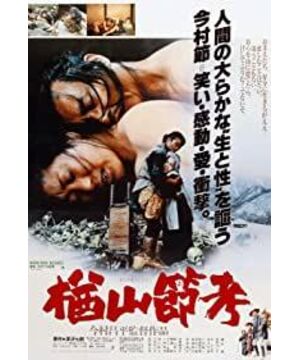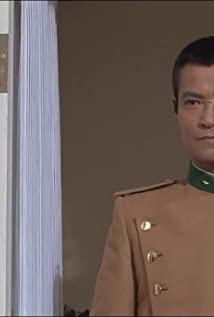In this small village below Narayama, people have been struggling for a bite of food for generations. Every winter, someone cannot eat this bite and cannot carry it in the spring of the next year. Every more person means an extra mouth to eat. It means that the danger of not passing the winter has increased. Here, people who can only eat but not work are not only useless people, but also redundant people.
In this situation, ethics has changed to suit reality. The child who was born was killed and discarded casually. People talked about it like throwing garbage, arguing about whose land it was thrown away. The couple talked about "If you give birth to a daughter, you don't need to be strangled, you can sell it for money." The reaction was so indifferent, as if they were not talking about a life but a prey. The reason for marrying is "I heard that the food here is better", and the only ceremony is "She will eat at our house from today". There is no big guard or shame between men and women, because people don't have extra energy to pay attention to those.
The most cruel rule is that when a person is 70 years old, his son must carry Narayama on his back and abandon him, so as to reduce the number of diners who cannot work. Since 70-year-olds are different from babies, they can't just throw them away. They have the ability to oppose and resist. So people develop this rule into ethics, give it various explanations and rituals, and make it a matter of honor. , Moral precepts, in this way, old people no longer have an excuse to oppose, obediently abandoning becomes a social norm that he must obey.
As a result, Liping, who chose to run away because he did not want to abandon his mother, became the object of being spurned. His "immoral" behavior made his son Tatsuhiro so ashamed that he killed him; he also let his wife. Lingpo decided to go up the mountain when she was about 70, so she smashed her still intact teeth with a stone to make sure she was old.
Lingpo wholeheartedly abides by all the ethics of this difficult society. Her relatives stole food because they had too many children to raise. The people in the village decided to "cut the grass and eliminate the roots". On the day of the action, she deceived her grandson-in-law, Asong, and tricked Asong back to her natal family and was killed together. She was still pregnant with a child. She persuaded the old neighbor who was struggling desperately and refused to go up the mountain, and told him to "don't be so shameless." She easily forgiven her son for killing his father and concealed it for him. These behaviors are extremely cruel in the current normal society, but in the society she lives in, she has made these choices with deep love-abide by all of them, just to give her son, Grandson leaves more chances to survive. In such a desperate situation, letting the ethnic group pass on and letting young people live is the only purpose in life and the greatest morality. In the face of such "great mercy", ordinary mercy is irresponsible.
People living in an affluent society are not qualified to judge such ethics. We have choices, but they don't. When one day we fall into a desperate situation and enter such a difficult life, are we capable of doing better than them? I doubt it deeply.
But I would rather not accept such a test. If life is destined to meet the end of the day, I would rather die before the end, because I am not strong enough to hold up such great compassion. When the people in the village covered the Asong family with rope nets and threw them one by one into the deep pit, and quickly filled them with soil and buried them alive, I was greatly frightened. After the previous preparations, I have fully understood their choice, but I cannot make such a choice. Let me also do Liping, give up this cruel responsibility and escape, even if I am killed by my own son, it is a kind of relief.
View more about The Ballad of Narayama reviews










